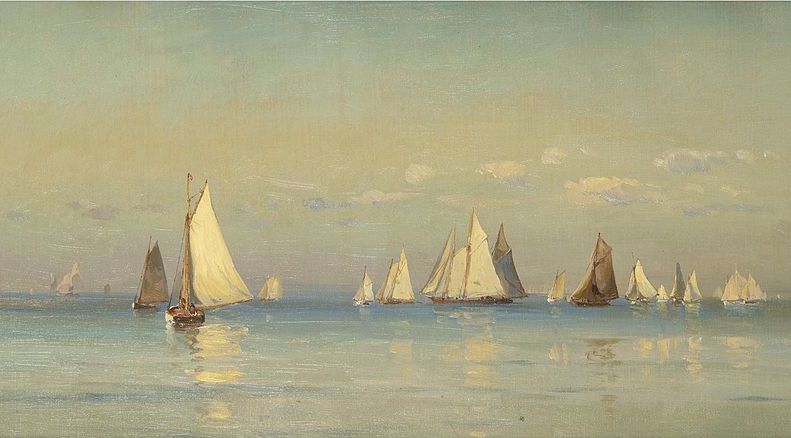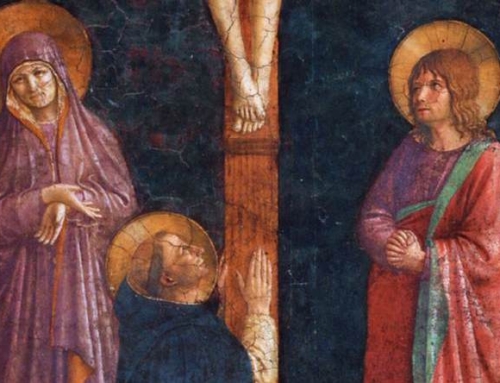Thomas and the Thomists: John of St. Thomas
This is one of the posts in a series on Thomistic commentators. For more information about who these figures are and the inspiration behind this series, read the introduction that can be found here. We hope that the teaching and life of these hidden giants will lead our readers to encounter the profound mysteries of our salvation. To read more posts in this series, click here.
In 1641, King Philip IV of Spain asked a Dominican friar, John of St. Thomas, to be his confessor. Some priests might enjoy being this close to secular power, but John was not one of these. For years, he had taught at the University of Salamanca. He loved his work, he was popular among his students, and he only agreed to the king’s request under obedience to his religious superiors. His appointment as royal chaplain proves, however, that others saw in John of St. Thomas a wisdom richer than mere book-learning. He was a man of the university, but he had vision that went beyond the ivory tower. Such depth and breadth rarely exist in one and the same man. In our own day, we see many specialists but few who are wise. In John of St. Thomas, however, we see both depth and breadth, and we do well to pause and consider who this man was and how we might imitate him.
I wish to highlight two significant features of John’s life that contributed to making him who he was. First, he knew he needed a trustworthy teacher. Saint Paul asks, “What do you have that you have not received” (1 Cor 4:17)? John would answer “nothing,” and even though he published original works in theology and philosophy, he would identify his teacher as Saint Thomas Aquinas, who labored with singular success in the “great ministry of laying out the stones of celestial wisdom in orderly fashion” (Isagoge, prologue).
But did John need to follow the thought of St. Thomas Aquinas? Was such “fidelity” forced upon him? No. Thomism was not a requirement of the age. The Reformation was over a century old. Thinkers like René Descartes were setting aside the traditional foundations of philosophy. But John did not start by erasing what had come before. Rather he recognized that a trustworthy teacher is like a good pair of binoculars. John knew that St. Thomas allowed him to see further than he would have been able to on his own. At the same time, John’s fidelity to Aquinas and the tradition of Thomist commentators did not mean mere repetition. Times change. New questions arise. John explored objections raised long after the death of Aquinas. John wrote exuberantly, while Thomas wrote simply. John shows that relying on St. Thomas and his well-tried principles serves to enliven the mind rather than deaden it.
But John had a more important teacher than Aquinas, and this is the second feature of his life that I wish to discuss. This more important teacher was the Holy Spirit, the one who guides Christians into all truth (John 16:13). Nowhere is John’s lively Thomism more evident than in his teaching on the gifts of the Holy Spirit. In fact, the celebrated Thomist Carmelites in Salamanca said that no one wrote “so sweetly, so profoundly, so clearly” about the mystery of the gifts as John of St. Thomas. Reading his work, it is obvious that he knew the Holy Spirit. He knew what it was to be led by the Spirit, and he wanted to teach others that this was possible.
To help us understand how we are led by the Spirit, John gives a deservedly famous image. Imagine a boat at sea, equipped with oars and a sail. When we focus simply on our growth in virtue, it is like we are rowing. We make progress, but slowly. But if we start relying more on God, the Holy Spirit—the breath of God—fills the sail, prompting us, giving us an instinct about what to do in this or that particular circumstance, conversation, or decision. Yes, rowing will always be part of the picture—sometimes the sail hangs limp. But the Spirit comes, and more often than we might realize. As Jesus tells Nicodemus, “The wind blows where it wills, and you can hear the sound it makes, but you do not know where it comes from or where it goes; so it is with everyone who is born of the Spirit” (John 3:8).
If we wish to live wise lives ourselves, we can do far worse than reading John of St. Thomas, in whose writings we sense the presence of “wisdom from above” (Jas 3:17). As Walter Farrell, O.P. put it in his foreword to the English translation of The Gifts of the Holy Spirit—and I’ll close with his words—“in this book, even the most unscholarly will get a glimpse, again and again, of the glory of God in the soul of man.”
✠
Image: Mauritz de Haas, Sailboats on a Calm Sea







